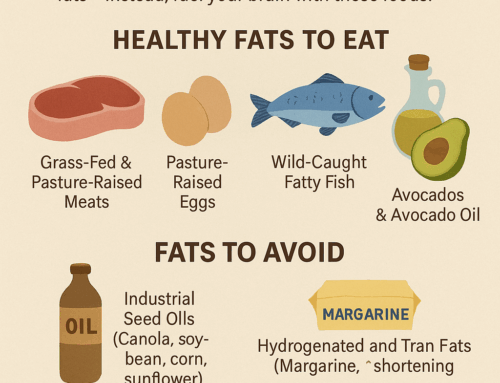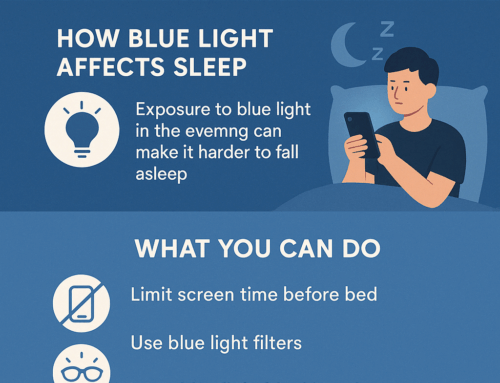Kids see far more than we give them credit for. One of the most impactful things you can do for your teenager is to model good mental health practices. Adolescence is a time of significant change, and teens must learn how to navigate these years with emotional resilience and a healthy mindset. Demonstrating positive mental health habits in your own life can provide a powerful example for your teen to follow. Here’s how you can model good mental health practices for your teen.
- Prioritize Self-Care
Self-care isn’t just a buzzword; it’s essential to maintaining mental health. When teens see you taking time to care for yourself, they learn that it’s okay—and necessary—to take care of themselves, too. Whether setting aside time for exercise, engaging in a hobby, or simply taking a break when you feel overwhelmed, your actions send a strong message. Encourage your teen to develop a self-care routine by discussing what activities help them relax and recharge.
- Communicate Openly About Emotions
Teens often hesitate to express their emotions, fearing being misunderstood or judged. By openly discussing your feelings—whether happy, stressed, or frustrated—you show that emotions are a natural and manageable part of life. Let your teen know it’s okay to talk about their feelings and that you’re there to listen without judgment. This openness creates a safe space for them to share their emotions and learn healthy coping methods.
- Set Boundaries and Manage Stress
Stress is an inevitable part of life, but how we manage it makes all the difference. Demonstrate to your teen the importance of setting boundaries, whether saying no to extra work when feeling overwhelmed or carving out time for relaxation. Show them that it’s okay to step back and recharge when needed. Discuss different stress-management techniques, such as deep breathing, mindfulness, or even taking a walk. When your teen sees you handling stress effectively, they’ll be more likely to adopt these practices themselves.
- Encourage Healthy Social Connections
Positive relationships are a cornerstone of good mental health. Show your teen the importance of surrounding themselves with supportive friends and family. You can model this by nurturing your relationships—make time for family activities, keep in touch with friends, and participate in community events. Encourage your teen to do the same, and remind them that it’s okay to distance themselves from toxic or unhealthy relationships.
- Practice Gratitude and Positive Thinking
A positive mindset can significantly impact mental health—model gratitude by regularly expressing gratitude through prayer, during dinner conversations, or in a journal. Encourage your teen to do the same, helping them focus on the good aspects of their life, even during challenging times. This practice can help shift their perspective and reduce feelings of negativity or hopelessness.
- Emphasize the Importance of Diet and Exercise
A balanced diet and regular exercise are vital components of physical and mental health. The foods we eat and the level of physical activity we engage in directly impact our mood, energy levels, and overall well-being. By modeling healthy eating habits and committing to regular exercise, you teach your teen the importance of caring for their body to support their mind.
- Healthy Eating: Incorporate fish, grass-fed, grass-finished beef, pasture-raised poultry, organic fruits and vegetables, and whole grains into family meals to show your teen the benefits of a well-rounded diet. Discuss how certain foods can boost mood and energy while others might contribute to feelings of sluggishness or anxiety. Encourage mindful eating practices, such as paying attention to hunger and fullness cues and enjoying meals together without distractions. To learn more about how diet impacts mental health, visit our blog,
- Regular Exercise: Physical activity is a powerful tool for managing stress, improving mood, and promoting better sleep—all crucial for good mental health. Whether going for a family walk, playing a sport together, or simply encouraging your teen to find a form of exercise they enjoy, make movement a regular part of your routine. Let your teen see that exercise is not just about physical fitness but also about feeling good mentally and emotionally. View our article on the importance of exercise.
- Seek Professional Help When Needed
One of the most important lessons you can teach your teen is that it’s okay to seek help when needed. If you’re feeling overwhelmed, stressed, or anxious, don’t hesitate to seek support from a therapist, counselor, or spiritual leader. By doing so, you normalize the process of seeking help and show your teen that mental health professionals can provide valuable guidance. Encourage them to speak to a professional if they’re struggling, and remind them that seeking help is a sign of strength, not weakness.
- Promote a Balanced Lifestyle
A balanced lifestyle is crucial for mental health. Show your teen the importance of balancing work, school, and leisure. Make time for physical activity, encourage a healthy diet, and ensure you and your teen get enough sleep. Balance also includes time spent on social media—modeling a healthy relationship with technology can help your teen develop similar habits.
Modeling good mental health practices isn’t about being perfect—it’s about being honest and intentional in handling life’s challenges. By prioritizing self-care, communicating openly, managing stress, seeking help when needed, and emphasizing the importance of diet and exercise, you can provide a strong example for your teen to follow. Remember, your actions speak louder than words, and by demonstrating these practices, you’re helping your teen build the tools they need for a healthy and resilient future.







Leave A Comment